Last updated on January 12th, 2024
Finding your spark again in midlife
by Carolyn Ray
One might wonder — why was Rona Maynard, the outspoken, iconic, feminist ex-editor of Canada’s most influential women’s publication, Chatelaine, speaking at a Travel Media of Canada Conference this year? I wondered too. But then I listened. And laughed. And wanted to know more.
From 1994 to 2004, Maynard was the Editor-in-Chief of Chatelaine, where she led the magazine through a decade of growth and innovation, winning major industry awards. Boldy, she shared her history of depression in a landmark editorial feature, inspiring a national truth-telling conversation among millions of readers across the country about mental health. Later, her advocacy won her a National Champion of Mental Health Award from the Canadian Alliance on Mental Illness and Mental Health. In 2008, she wrote “My Mother’s Daughter”, a memoir about her relationship with her domineering mother, Fredelle. An award-winning journalist, acclaimed author and inspirational speaker, Maynard has been writing and speaking ever since about the health-giving power of everyday encounters with nature, neighbors and the ones we love, blending humor and life-tested wisdom.
Recently, she and I spent a morning in a Toronto coffee shop chatting about travel, her new book, ageism and mental health, all topics she has spoken about for decades. It was such a fascinating discussion that I can’t bear to edit it too much — so you, dear readers, get a taste of this witty, passionate personality and her wonderful story of unexpected love for her dog Casey, which she shares in her latest book “Starter Dog:
Morning coffee with Rona Maynard… in her own words
How it all began…
Why did I write this book? I had no idea I was going to write a book about a dog. I was years away from Chatelaine and I had been casting about for the next big project. I wrote a book right after I left Chatelaine and that was now history. I did some blogs. I did keynote speeches. I did a bit of this and that.
And it all felt small. It all felt piecemeal. I thought the answer, the missing piece was going to be something that I would figure out with my brain power, and it was going to have a lot of complicated, moving parts.
My husband, out of the blue, took my hand at the dinner table, and said, “Let’s get a dog.” And I thought, ‘what gave him this idea?’ If we were meant to have a dog, we wouldn’t be getting a dog now in our 60s. We would have had a dog when our son was around to play fetch.
The people we knew, our age, were burying their last pet. They were training to hike mountains. They were winter camping. And it just did not seem to make sense because I thought there was a one right time for getting a pet. And my husband I could tell was really all in. He wanted a dog very badly. And if I said no, he’d forgive me, but there would always be that little piece of him asking, “What if? What if we’d had a dog?”
So out of love for my husband, I said yes, grudgingly. I am incapable of saying, “Oh yes, let’s.” I’m one of those people who always have to say, “Well, maybe, or on one condition.” And I did have one condition for the dog which was that the dog would never sleep in our bed. I did it for love but I didn’t think I could love a dog.
When you least expect it
The story that unfolds is about love coming along when and where you least expect it, opening doors in your mind and your heart. I was not a dog person. My family had a dog when I was in my teens and I did not care for this dog. A great dog in everybody else’s estimation, but just not mine.
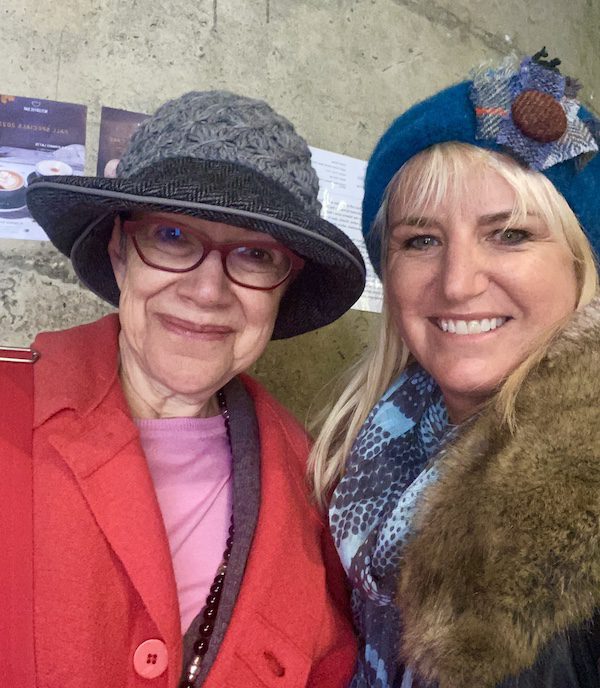
I was not about to rush into this. Frankly, I wanted to slow the whole thing down. I spent a lot of time asking what kind of dog and getting recommendations for different breeds. Everybody wants to sell you on their dog. There’s the Springer Spaniel people, and the Lab people, the Boston Terrier people. And so it goes. I was buttonholing people who had cute dogs and saying, “What kind of breed is that?” But I quickly realized we could not get a puppy from a breeder because we live in a main floor condo. We were not going to be training a puppy.
We were going to have to rescue a dog. And we went fitfully to the dog rescue sites and then we’d get distracted by travel. We were traveling a lot at that time. And we thought that between trips we should give our new dog six months to be at home with us without us dashing off to Berlin or Shanghai or somewhere. So finally, we looked at each other and one of us said – I think it was me, but my husband swears it was him – “If we don’t get this dog now, it’s just not going to happen.”
“Something was missing from my life, and it sure as hell wasn’t a dog. Once upon a time I had felt connected to a project greater than myself. I went out every morning to a place in the world where I belonged, and came home refreshed by its ever-changing buzz and hum.” — Rona Maynard, Starter Dog
Then things got serious
We cancelled a trip to South Africa. And we got serious. There was at that time only one dog available on the local rescue sites that met our very complicated criteria.
Because we were first-timers, we could not have a traumatized dog. A lot of them have been taken from borders or bad situations of one kind or another. We could not take a dog with complicated issues. We were not going to have a palliative care dog. The dog had to get along with kids and couldn’t be too big. I set an arbitrary limit of 25 pounds.
When we went to pick it up, the dog turned out to be Casey. I was not smitten. I thought he was just the only one available and we were going to have to settle. But he wasn’t too bad. He was what my husband calls a doggie dog, which is to say, he’s not that button-eyed dog that all will go gaga over on the street. He looks as if he was born to chase squirrels and play around in the mud.
I found him at a rescue organization. We went on all these different sites. Once we decided to get him, I did not love him at first sight. But as soon as he walked through our door, his first act in our home was to pee on the taffeta skirt of the chair. A decorator had chosen the fabric for that chair. I’d always been extremely fussy about stains in my home. I like everything tickety boo. But I forgave him on the spot because I could tell he was nervous. He would not have done this if he felt at home. He needed to get to know this home. I watched him sniff every cranny of our home. This was Easter Sunday 2015.
“A poem by Mary Oliver, “When Death Comes,” kept calling me. With more years behind me than ahead, I too had been thinking of death as a hungry bear closing in. Yet the poet knew something I didn’t. She had turned her attention from dying to full-tilt living. She wanted to leave this world as a passionate and satisfied lover of all its delights, not as a mere visitor. That sounded good to me.” — Rona Maynard, Starter Dog
Seeing the world with new eyes
There are times in every life when your emotional toolkit doesn’t work anymore. You’ve come to a turning point. I had designed my whole mindset around an office and team environment. Not to be a writer at home with no structure in the day except what you put there yourself.
If you have a dog that needs to be walked, you’ve got to stretch your day. You go out with your dog, and the whole neighbourhood will see you, because that dog is stopping to sniff, to pee, to get to know the neighbours.
You see all the funny little sights. You see the snow that falls on a leaf in October, early snow. And you see how beautiful the snow is on that orange leaf. You find the one white iris that’s blooming in November. You watch the bee harvesting honey from that flower.
You see the wind turning pages on a book. These were all little wonders. And if I had been just charging through, viewing my walk as a means of exercise or of getting somewhere, I would not have made these discoveries.
On showing up
You have to have a sense of structure in your day. And I feel that I need somebody to show up for. At Chatelaine, I had a career, a wonderful career that I had chosen. I did not miss the job, but I missed the team. So Casey became my team of one, and every day we met an ever-changing cast of characters, human and not.
It’s hard to be an older woman at home alone, even if you are very invested in the work that you do. This is on my mind because a woman I knew in the neighbourhood was found, a single woman with cats, who just died alone in her home. I think if someone had been with her, they might have been able to get help her in time. But when you are alone, you are on your own.
I was thankful every day of the pandemic for my husband. I saw that it was much harder for single women, particularly those who were widowed, who, even if they had been widowed a long time, missed their spouse more than ever.
The state of the world can be utterly demoralizing. When there is one other being, one other soul with you who cares about you, who you can care about, that creates a warm little oasis in a cold place.
During the pandemic, I saw for the first-time people being very frank with the difficulty they were having. It truly was something new. Up to that point, people seemed to feel that they had to put this very high gloss version of themselves up there of their perfect life. And I don’t see so much of that now. I see many more people admitting that they’re not physically well, that they are alone and are uncertain. And we’re not as afraid to tell the truth about ourselves anymore.
On age and ageism
I am not shy about my age at all. Bring it on. Let people know it. I’m 74. I’ve been married for 53 years. I’m proud of these things. In fact, I would say I’m extremely fortunate to be 74 years old and in good health because so many of my friends didn’t want to get to this age. My mother didn’t want to get to this age.
After 70 particularly, you realize how fragile health is and that it could change any day. You could be diagnosed with something awful. And the risk of that of course goes up as time moves on. But here you are. Every day is a gift and a blessing. That doesn’t mean it isn’t hard. It’s very hard to lose people you love. It can be hard to live in an aging body. Aches and pains arrive that are here to stay.
I go out with Casey every morning. And I challenge myself to find something new, fascinating and beautiful. There are no boring places, only bored people. I have seen that over and over again. I have had to walk Casey in some downright ugly places. When you’re road-tripping with a dog, and you’re taking a walk in a parking lot in West Texas, believe me, it does not look promising. But then you see a honeymoon car with a message on the rear window about taking a second chance on love. And your heart soars for the couple.
But, keep your eyes open. West Texas is the ugliest place, on the face of it, where we have ever been. But there are things to see in West Texas.
“A celebration of life, if you’re human, only happens after death. For a dog it happens every day, everywhere. The gladness of the quest for singular scents, the gravity of fixing each one in a brain designed for the task. Casey’s busy snout is the canine song of praise for scat and pee, new grass and decaying leaves intermixed with who knows what.” — Rona Maynard, Starter Dog
On mental health
I have a long history of chronic depression. And I’ve been doing way better since I finally went for treatment at the age of 36. This is a tenacious disease to have. And if it has come for you in the past, it’s likely to come again. And it’s not necessarily going to look the same as it did the last time. It is a shapeshifter.
You manage it by cultivating good mental habits. Get out there every day. If there’s something that gives you pleasure, do more of it. Do it and do it and do it. If there is a poem and it gives you hope, read it and read it and read it. I am inspired by poetry. I turn to it often.
Things have improved a lot since I first started talking about mental health in 1997. And I talked very tentatively. You know, there’s nothing we can experience, nothing that can haunt us, nothing that can worry us that hasn’t come along to bedevil humankind before. People wrote about it. They told the truth about it. And we can draw strength and comfort from what they wrote.
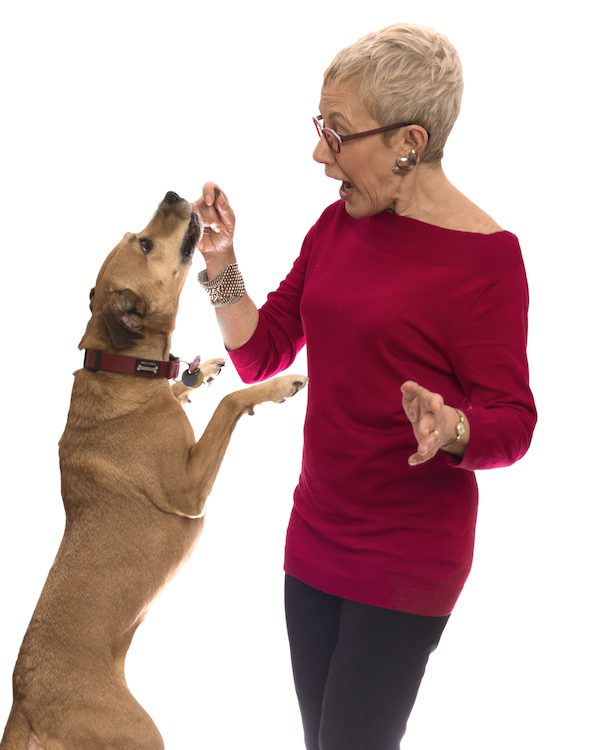
On going somewhere new
I’ve got to tell you I don’t love travel as much as I used to, because it’s just not as pleasant getting from here to there as it once was. I remember when the seats on the plane were bigger, a lot bigger, and the airports were not as crowded.
We were just in Vienna. We are art tourists. There aren’t many more wonderful cities for looking at art than Vienna. It is a treasure house for these things, plus it is beautiful. It’s very easy to walk around, and anywhere you want, quickly. They’ve got fabulous public transit. We love that about the Netherlands too. You can get on public transit in Rotterdam, and we went up to downtown Amsterdam. How cool is that?
We have been to some really enchanting places like Mendoza. Mendoza, at that point, wasn’t overrun. There were these beautiful winery restaurants where you could drink wine for not a lot of money. We felt that we were truly discovering something. We were not always there with a preconceived notion of what it was going to be like. You go to Paris, it looks exactly like you thought it was going to look. And in a way, that is wonderful. It is the only place I’ve ever been that looked like the image I’ve carried in my head since the 1950s.
But there’s a lot to be said for going somewhere that is utterly new. And where else have I loved? People told me, “Oh Madrid, it’s just another big city.” Well, no it’s not. It has its own character. I will never forget that our first evening in Madrid, I was a little jet-lagged and I fainted on the street. And a group of young people came up and sat down with me and helped me and my husband, and they stood with me until it was very clear that I was okay to go back to the hotel.
It was so kind of them to do so. I felt the warmth of the people. We’ve also had some wonderful self-guided hiking engagements. We would not do that now because our knees are not what they were. We did the Camino light. That was not self-guided. What made it light was we were only doing the beautiful parts of the route, not the boring ones. And there was a van to carry you around and pick us up from before we got tired. I’m not pure of heart that way. I don’t want to carry my laundry on my back. I want to sleep in a nice hotel, and enjoy some good food. I don’t want to be medicating my blisters every night.
What’s next
I’m going on a big trip to Guatemala because my sister has an estate there. I am actually dreading this trip, because I have to fly to Dallas, then to Guatemala City. It’s hours and hours and hours, by various conveyances to get to her house. And I’m kind of cranky as a traveler. I also have a very bad habit of losing things. I’m a little anxious but I know that once I get there, I’m going to have a marvellous time.
I am still writing. I have a Substack newsletter, Amazement Seeker. Looking for amazement is how I stay well. And I would love to do some speaking about animals and mental health, about how our animals re-ground us and lead us into the world. The hazard with depression is it will carry you away from the world.
There are some ideas that I am mulling for bigger writing projects. They’re gestating. I like to be surprised by my life.
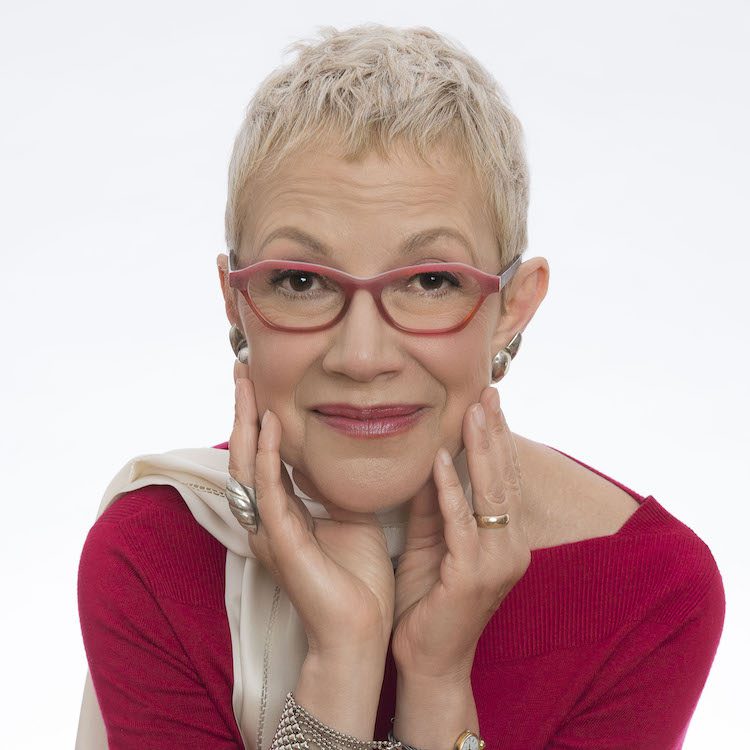
Rona Maynard is featured in our Women’s Speakers Bureau!
Find her and other women over 50 to speak at your event.
More Stories About Reinvention to Inspire You
Travel with Purpose: Volunteering at a Turtle Conservation Project in Costa Rica Makes My Dream Real
As a volunteer on a turtle conservation project in Costa Rica with Conservation VIP, I fulfilled a long-held dream to help baby turtles.
Sisters Doing it for Themselves: Hiking the Himalayas in an All-Women Group in Nepal
Sarah O’Regan braves the elements in the Himalayas, finding sisterhood and tranquility with a social enterprise that empowers women.
Cactus Cocktails and Low-emission Coffee? What We Can Learn From the Caribbean Island of Bonaire
From cactus cocktails to low-emission cups of coffee, the Caribbean island of Bonaire, population 22,500, is a leader in sustainability, with lessons to teach about the transformative impact of travel.

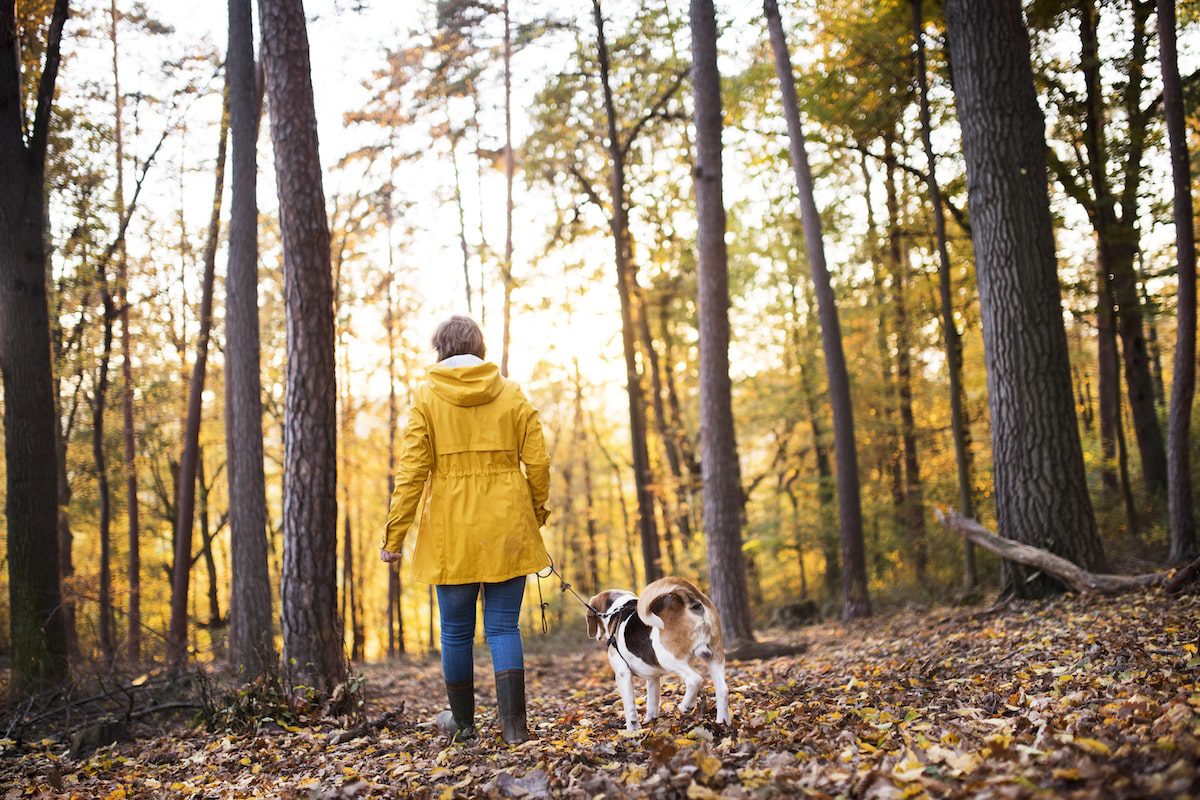



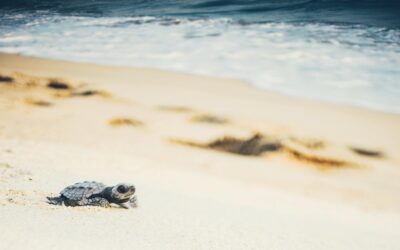
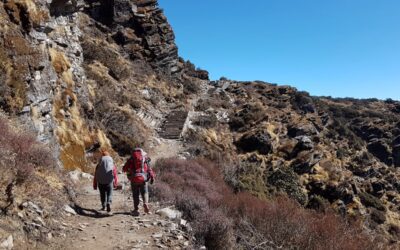

I love Rona’s frank honesty about so many things, especially the Camino: “I’m not pure of heart that way. I don’t want to carry my laundry on my back. I want to sleep in a nice hotel, and enjoy some good food.” I’m reminded of William Hurt’s character in The Accidental Tourist. While Rona acknowledges her cranky traveler leanings, we are all grateful for her discerning observations and insights as an absorbent “art tourist” abroad.
If you haven’t read Starter Dog yet, it’s a pure joy. Casey’s chutzpah and oblivion reminded me of many of the grand dogs I’ve long-loved. I wanted the beautiful walk to be longer! There’s so much happiness in this memoir—what’s that expression about being happier than a dog with two tails? Do yourself an indulgent favour and follow Rona everywhere—on her dog walks in Starter Dog, on Facebook and Substack! It’s ironic that Rona’s search for her next project in life took the form of a genuine pet project. I’m glad.